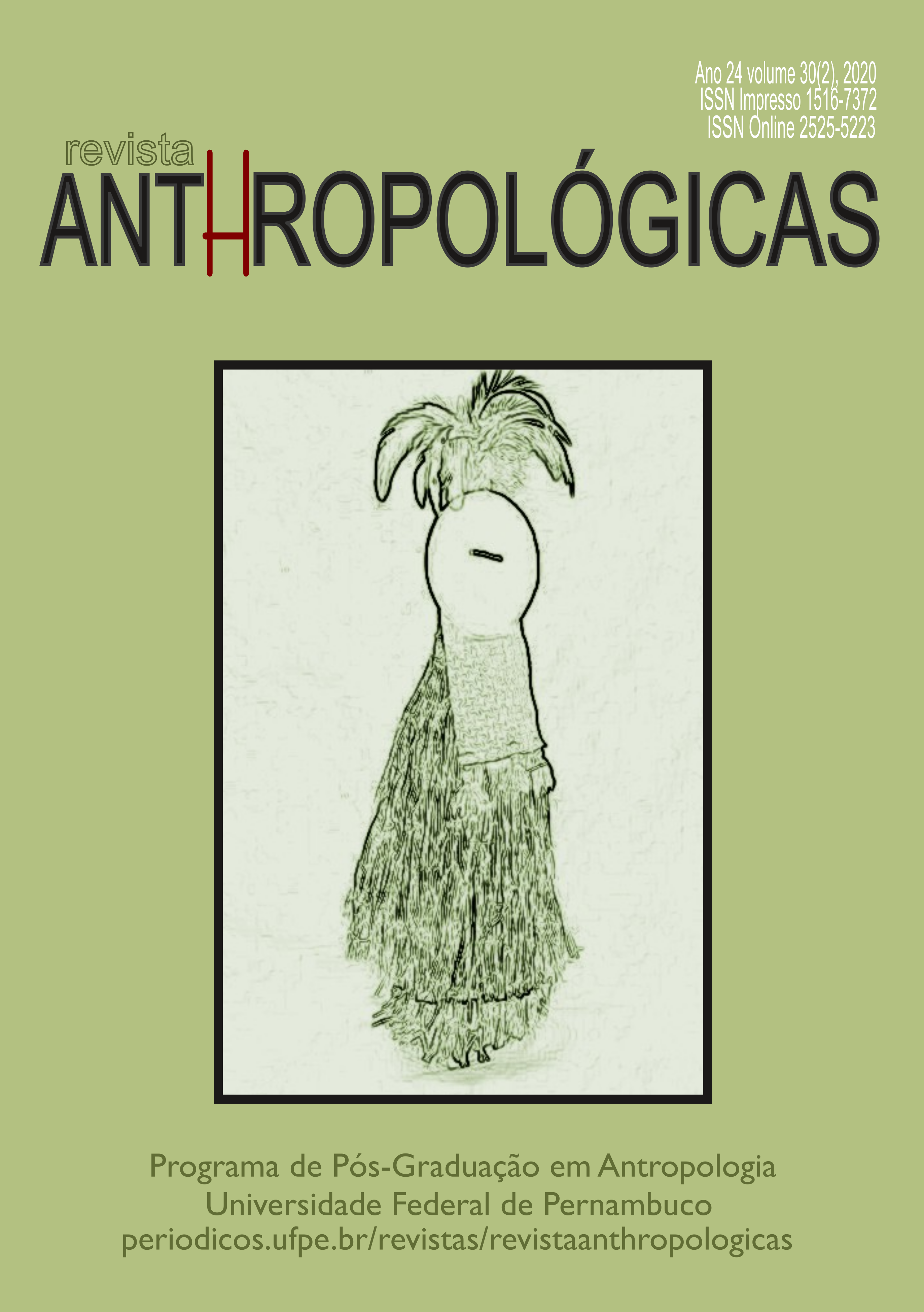Beyond Price at Aurora. Reflection on politics, infrastructure and money in ordinary life
DOI:
https://doi.org/10.51359/2525-5223.2020.247449Keywords:
Infrastructure, Daily Life, Money, Consumption, Political ActionAbstract
This article analyzes the act of paying from the anthropological perspective on infrastructure. More specifically, the argument relies on its conceptual tools that point out the ordinary, banal and invisible dimension in which infrastructures are revealed to people in their daily interactions. This reflexive exercise is enriched by an empirical case that this bureaucratic consumption itinerary, paying for something, is organized in a different way: a restaurant in which the meal does not have a fixed, pre-set or even suggested price. The Aurora proposes the “sem preço” (without price) as a practice of “co-responsibility and mutual support” based on the understanding that money has different values in our society for each person. The contrasting effect this experience engages allows us to deepen the understanding about our naturalized commitments to the logic of the functioning of infrastructures through the constant exchange between materiality and ideology in which we are always agents and subjects.
References
BEAR, L. et al. 2015. Gens: A feminist manifesto for the study of capitalism. (https://culanth.org/ fieldsights/652-gens-a-feminist-manifesto-for-the-study-of-capitalism; acesso 03/06/2020).
BOAS, T. C. & GANS-MORSE, J. 2009. “Neoliberalism: From New Liberal Philosophy to Anti-Liberal Slogan”. Studies in Comparative International Development, 44(2):137-161.
BOLTANSKI, L. & CHIAPELLO, É. 2009. “‘O capitalismo e seus críticos’. O novo espírito do capitalismo. São Paulo: Martins Fontes.
BOURDIEU, P. 1998. A essência do neoliberalismo. Contrafogos: táticas para enfrentar a invasão neoliberal. Zahar: Rio de Janeiro.
BOURDIEU, P. 1991. The Logic of Practice. Stanford: Stanford University Press.
COMITÊ INVISÍVEL. 2016. Aos nossos amigos: crise e insurreição. São Paulo: n-1 Edições.
DALAKOGLOU, D. 2010. “The road: An ethnography of the Albanian–Greek cross-border motorway”. American Ethnologist, 37(1):132-149.
GANTI, T. 2014. “Neoliberalism”. Annu. Rev. Anthropol, 43:89-104.
GRAHAM, S. & MARVIN, S. 2001. Splintering Urbanism: networked infraestructures, technological mobilities and the urban condition. Routledge: London and New York.
GRAEBER, D. 2012. “Dead zones of the imagination: On violence, bureaucracy, and interpretive labor”.
HAU, Journal of Ethnographic Theory, 2(2):105-28
GROS, D. 2003. Institutos Liberais e neoliberalismo no Brasil da Nova República. Tese de Doutorado. Porto Alegre: Fundação de Economia e Estatística Siegfried Emanuel Heuser.
HARAWAY, D. 2004. “Modest_Witness@Second_Millennium”. In HARAWAY, D. (ed.): Haraway Reader, pp. 223-250. New York: Routledge.
HARVEY, P. & KNOX, H. 2015. Roads. An Anthropology of Infraestructure and Expertise. Ithaca and London: Cornell University Press.
HERZFELD, M. 1992. The social production of indiference. Exploring the symbolic roots of Western bureaucracy. Chicago and London: The University of Chicago Press.
LARKIN, Brian. 2013. “The Politics and Poetics of Infraestructure”. Annu. Rev. Anthropol., 42:327-43.
MAGNANI, J. G. 2014. “O Circuito: proposta de delimitação da categoria”. Ponto Urbe, 15. (http://journals.openedition.org/pontourbe/2041; acesso em 24/06/2020).
MILLER, D. 1998. A Theory of Shopping. Cambridge: Polity Presss.
MILLER, D. 2007. “Consumo como cultura material”. Horizontes Antropológicos, 13(28):33-63.
NEIBURG, F. 2007. “As moedas doentes, os números públicos e antropologia do dinheiro”. Mana, 13(1):119-151.
NEIBURG, F. & GUYER, J. 2020. “Introduction: The real in the real economy”. In NEIBURG, F. & GUYER, J. (eds): The Real economy, Essays in ethnographic theory, pp. 1-27. Chicago: Hau Books.
ORTNER, S. B. 2007. “Subjetividade e crítica cultural”. Horizontes Antropológicos, 13(28):375-405.
PORTILHO, F. 2010. “Self-attribution of responsibility: consumers of organic foodsin a certified street marketin Rio de Janeiro, Brazil”. Etnográfica, 14(3):549-565.
RILES, A. 2003. “Market Collaboration: Finance, Culture, and Ethnography after Neoliberalism”. American Anthropologist, 115(4):555-569.
SCHEGLOFF, E. A. 2006. “Interaction – The Infrastructure for Social Institutions, the Natural Ecological Niche for Language, and the Arena in Which Culture is Enacted”. In ENFIELD, N. J. &Levinson, S. C. (eds.): Roots of Human Sociality: Culture, cognition and interaction, pp: 70-69. London: Berg.
SCOTT, J. 1998. Seeing Like a State. How Certain Schemes to Improve the Human Condition Have Failed. New Haven/ London: Yale University Press.
STRATHERN, M. 2014. “Sujeito ou Objeto? As mulheres e a circulação bens de valor nas terras altas da Nova Guiné”. In STRATHERN, M. (ed.): O Efeito Etnográfico e outros ensaios, pp.109-133. Cosac Naify: São Paulo.
SHINEIDER, K. 2015. A revolução está no prato: do global ao local no movimento slow food. Dissertação de mestrado. Florianópolis: Universidade Federal de Santa Catarina.
SIMMEL, G. 2005. “As grandes cidades e a vida do espírito”. Mana, 11(2):577-591.
SMITH, M. L. 2016. “Urban infrastructure as materialized consensus”. World Archaeology, 48(1):164-178.
STAR, S. L. 1999. “The Ethnography of Infrastructure”.American Behavioral Scientist, 43(3):377-391.
WEBER, M. 1974. “Burocracia”. In GERTH, H.H. & MILLS, C. W. (eds): Ensaios de sociologia, pp. 229-282. Rio de Janeiro: Zahar Editora.
Downloads
Published
Issue
Section
License
Direitos Autorais para textos publicados na Revista ANTHROPOLÓGICAS são do autor, com direitos de primeira publicação para a revista.
Authors retain the copyright and full publishing rights without restrictions.


